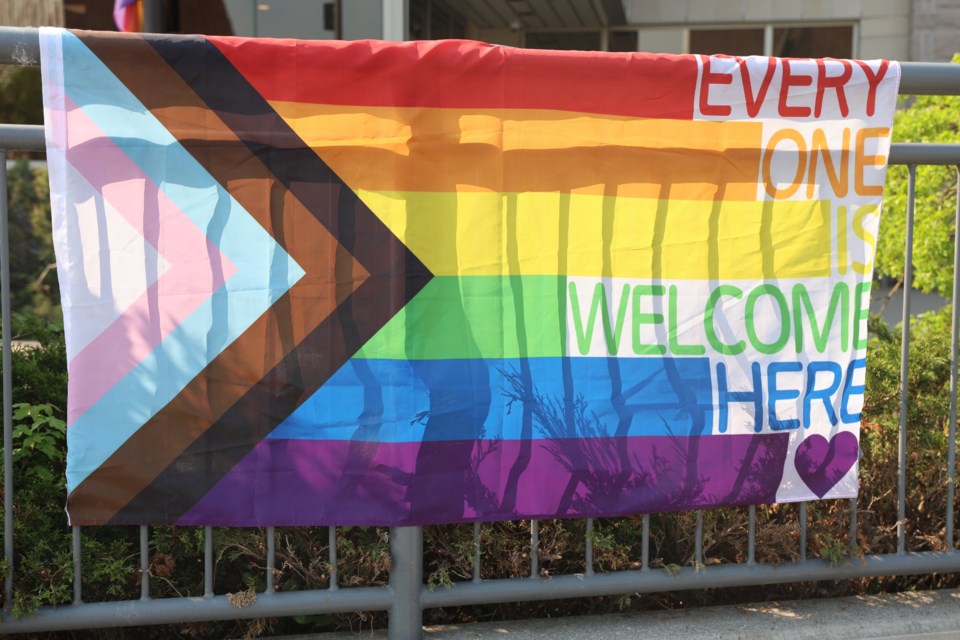FORT FRANCES — A Northwestern Ontario lawyer who has successfully litigated several defamation cases in support of the 2SLGBTQIA+ community says mounting case law is making clear that unfounded attacks come with a price tag.
Douglas Judson, a partner with Judson Howie LLP, and his Fort Frances firm recently announced a successful libel suit against a B.C.-based owner of a website and related social media accounts, after the defendant repeatedly published material online, dating back to 2023, explicitly accusing the plaintiffs of sexually grooming children, calling them pedophiles and child predators among other things, and also left expletive-filled voicemails at their offices.
A Superior Court judge in Ottawa recently awarded a total of $1.75 million in damages, plus interest, to the Canadian AIDS Treatment Information Exchange, known as CATIE, and seven of its current and former volunteer directors and staff. An eighth individual plaintiff died before the ruling, but her estate can apply to the court for damages, which, if successful, would further increase the total.
CATIE is a not-for-profit that provides treatment for and information about HIV/AIDS and hepatitis C, with a focus on marginalized and at-risk communities, including 2SLGBTQIA+ people.
“We're very pleased that the decision recognized the gravity of the libels in question and just why they were so insidious and damaging,” Judson told Newswatch in an interview.
“So, all around, this is a good victory for our clients, but it's also a really important victory for the community.
Judson also represented Rainbow Alliance Dryden and Dryden-based drag performer Caitlin Hartlen as well as two long-time Thunder Bay drag queens, Felicia Crichton and John Forget, in their suits against local blogger Brian Webster for anti-drag online posts that a Thunder Bay judge ruled defamatory.
Justice Helen Pierce awarded a combined $380,000 to the plaintiffs in that case in February 2025, which was cited as part of Justice Kerry Lee McVey’s Aug. 18 decision in the CATIE case.
Judson said, while there’s plenty of case law that goes back a long time that establishes that falsely and publicly labelling someone a pedophile is defamatory, these recent judgments also reflect current political realities.
“Where we're seeing the political far right really adopting and embracing this really antiquated language that suggests that queer people are a danger to families, that they're a danger to children, that they're trying to convert or lure your children,” he said.
“All of these completely baseless libels that have been used historically to disadvantage and cause economic and personal harm to 2SLGBTQIA+ people.”
The judge in the CATIE case agreed.
“Through these various posts, the defendant unmistakably conveyed that CATIE was an organization that promoted pedophilia and employed or advanced individuals engaged in such criminal conduct,” McVey said in her decision, calling the defendant's actions “a bigoted and hateful campaign.”
“The defendant perpetuated a baseless and deeply damaging stereotype linking members of the 2SLGBTQIA+ community to pedophilia — a false association that has long been used to marginalize, criminalize and dehumanize gay people,” McVey wrote.
“This baseless stereotype has historically rationalized discrimination, and incited acts of hatred, harassment and even physical violence.”
“I think we're seeing the court recognize that there is a potential for real harms that are connected to this manner of expression,” Judson added.
Another point that Judson said stood out to him in this case is that the judge not only acknowledged the damage such speech does to individuals, but also to organizations that work with vulnerable people.
“In the case of CATIE, that would be not just queer people, but people who use drugs or other vulnerable groups who may be more at risk of contracting a bloodborne infection or sexually transmitted infection,” he said.
“I think there's a recognition in her decision that, in casting aspersions on people who are there to provide their expertise to support that work, it undermines the ability of organizations like this to exist and to protect those vulnerable groups.”
Judson added that there is a lot of support in the legal community, especially those who specialize in matters affecting the 2SLGBTQIA+ community, to advance cases like this.
“Speech is free, but hate you have to pay for,” he said. “The court recognizes that individuals in our community, particularly individuals who are working with vulnerable groups or members of those vulnerable groups, don't need to do so under the cloud of these outright lies and fabrications.”
